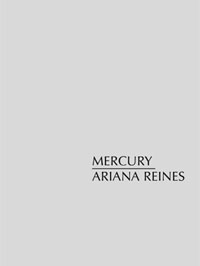ALT LIT GOSSIP Ohio Watching Party
Here’s a bunch of people in Ohio at Noah Cicero’s house watching the ALT LIT GOSSIP awards talking shit, doing drugs, and other things people here can bitch about being a ‘waste of [your internet time].’ Enjoi.
My Favorite New Movies of 2011
Happy New Year, HTMLnets. I watched fewer new films in 2011 than usual, but that won’t stop me from opining on what I saw. Although I should clarify that the following list isn’t limited to 2011, but covers “the thirty newish films I saw this past year.” And here are my lists from 2009 and 2010, for comparison’s sake.
We’ll start with the best…
God is a collective action problem
I read maybe a weird amount about finance and economics. I’m not entirely sure why: it’s not as if I have the means, educational or otherwise, to evaluate the truth of what I’m reading. Felix Salmon is one of my favorite writers in this area. He and others have been talking up this post by Steve Waldman as uniquely informative and thought-provoking. I read it and I felt that this was fair, and then I started thinking (as I will so-painfully-predictably do) about its applications to writing. You should read the whole thing, but I’ve put together a short version (with most of the assertions and very little of the evidence-by-example, the gold standard of persuasion!).
I’ll summarize in advance: finance in general, and banks in particular, are hopelessly complex and opaque, but this is basically a good thing. It allows us to trick ourselves into investing despite our naturally risk-averse nature by hiding the risk inherent to investment. Economic development requires us to solve a classic collective action problem: nobody wants to be the first to invest, but we need broad investment and many failed enterprises in order to generate returns–and benefits in terms of human welfare. Banks help us to move past this problem by lying to us (though they themselves believe the fiction). They can’t eliminate risk, but they can and do hide it. This opacity allows them to commit fraud and other shady activities, but it’s probably necessary to develop something like modern civilization. My edited-down version of Waldman’s argument, and some attempts to link this to writing and reading, are after the fold: READ MORE >
Ariana Reines & Mercury: An Interview
 Mercury
Mercury
by Ariana Reines
Fence Books, 2011
128 pages / $16.95 Buy From Fence
Three falls ago, I was in one of my first legit poetry workshops (that particular workshop during which I realized that poetry was going to be one of those things that would be part of my life for forever, like Lyme Disease or an eating disorder) and I was freaking out about being a girl and wanting to write a particular kind of poem and feeling that I wasn’t allowed to do so. My professor, who was/is this very wise man, a carpenter as well as a poet and probably a prophet of some kind, told me I might be interested in reading Ariana Reines. Since I was at the time a very eager and diligent student I went to my room and read every one of her poems I could find online, and as it was right before Christmas I sent my mom the following e-mail that night:
Carina Finn
11/30/09
to Debra, debiallied
Also every book ever written by Ariana Reines instead of just the one. There aren’t that many and they aren’t the expensive because she’s only 26. In fact there are only two, Coeur de Lion and The Cow, three if you count her translation of My Heart Laid Bare by Baudelaire which I would also enjoy. Feel free to pass this along to anyone you know who’s in the market for a Christmas present for me. Those books are now the most important things on my list because they are the most important books that have been written in a very long time.
Because my mother has always bought me any book I have asked for without question, I did get these books for Christmas and I spent all of winter break that year reading them and re-reading them. Since then, because of a lot of happy cosmic circumstances, I’ve had the chance to read her work in graduate classes, write about it, see Ariana read it, and talk to her about it. What follows is a rendition of Facebook messages and e-mails between Ariana and me about her new book, Mercury, which was just released by Fence Books and can be purchased here.
January 2nd, 2012 / 1:00 am
For the New Yorker podcast, A.M. Homes reads & discusses Shirley Jackson’s “The Lottery.”


